Alice Hart-Davis & Dr Tristan Mehta on Aesthetics Regulation in 2024

The state of UK aesthetics regulation in 2024 is a hot topic now that we know changes are underway. England is leading the way by introducing an aesthetics licensing scheme, which is currently being developed.
Leading aesthetics journalist and founder of The Tweakments Guide, Alice Hart-Davis and Harley Academy founder, Dr Tristan Mehta got together on 25 March 2024 on Instagram Live. Entitled, When Will Aesthetics Be Regulated? You can watch their full discussion in the video below.
If you’d prefer to skim their conversation, we’ve highlighted some of the key points for you below…
When Will Aesthetics Be Regulated in the UK?
Watch Alice and Dr Tristan discuss where we are with aesthetics regulation in 2024, how we’ve got to this point and what happens next.
Below we’ve extracted some of the most informative elements of their conversation.
Harley Academy’s interest in aesthetics regulation
Alice: “The first thing to ask would be could you explain your involvement and Harley Academy’s, in the licensing? Because I know you've had more of a role in this than most.”
Dr Tristan: “It's been a topic that's been very close to me personally and in the business that we've built over the years. The origin of this idea of aesthetics regulation goes back even beyond 10 years ago, when we had the original Sir Bruce Keogh report in 2012.
“It was around the time of the Health Education England process where I joined a committee… Initially I just attended to learn what was going on, and I registered my interest because I wanted to understand where education is going in aesthetics. And so, really, it's been since 2015, I would say, where I've been part of the conversation, contributing. Obviously, along the process, I've been really interested in what the government's recommendations are for aesthetic medicine education…
“Of course I have my very clear agenda of wanting to build an aesthetics education company around these standards but the original intent was to try and help steer that, to try and help understand that to drive up patient safety for the sector - and that's what we've been working towards since the beginning.”
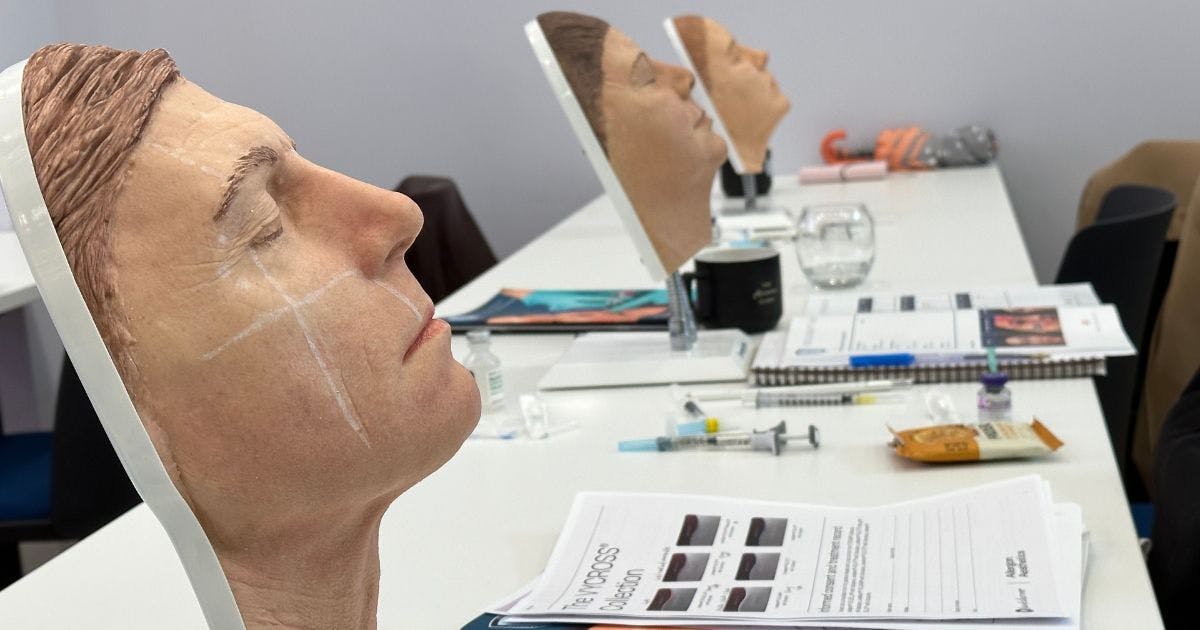
When will aesthetics regulation come into force for England?
Alice: “Is it impossible to say when we may be seeing this regulation coming into force?”
Dr Tristan: “ I'm hesitant to say anything absolute because we know what it's been like and we get excited every few years. We get excited because we think regulation's starting to happen. I think we can definitely say we're the most progressed we've ever been in the UK for regulating this chapter. And I think that's really, really important.
Alice: OK, and there was the consultation period last year where people - normal people as well as anybody else in the industry - could give their views. Am I right in saying that had more responses to it?
Dr Tristan: “Yeah, thousands of responses. This consultation process is part of the government's mandatory legal process before they create any form of aesthetics legislation. This consultation is based around a set idea or principles that have been developed over many, many years. And there are no surprises in this, right?
“So, the idea is that we have some categories that are going to be under some form of almost surgical regulation, like the CQC. We're going to have some interventions that rightfully are so high risk that they belong there. Brazilian butt lifts, for example, threads, things like that. Whereas we also know that things like injectables - which is a huge part of what we do - is going to live in the amber category.
“This consultation process is just reinforcing the kind of themes that we've been speaking about for a while. The most exciting one is really about injectables and putting that in its rightful place to protect the public.”
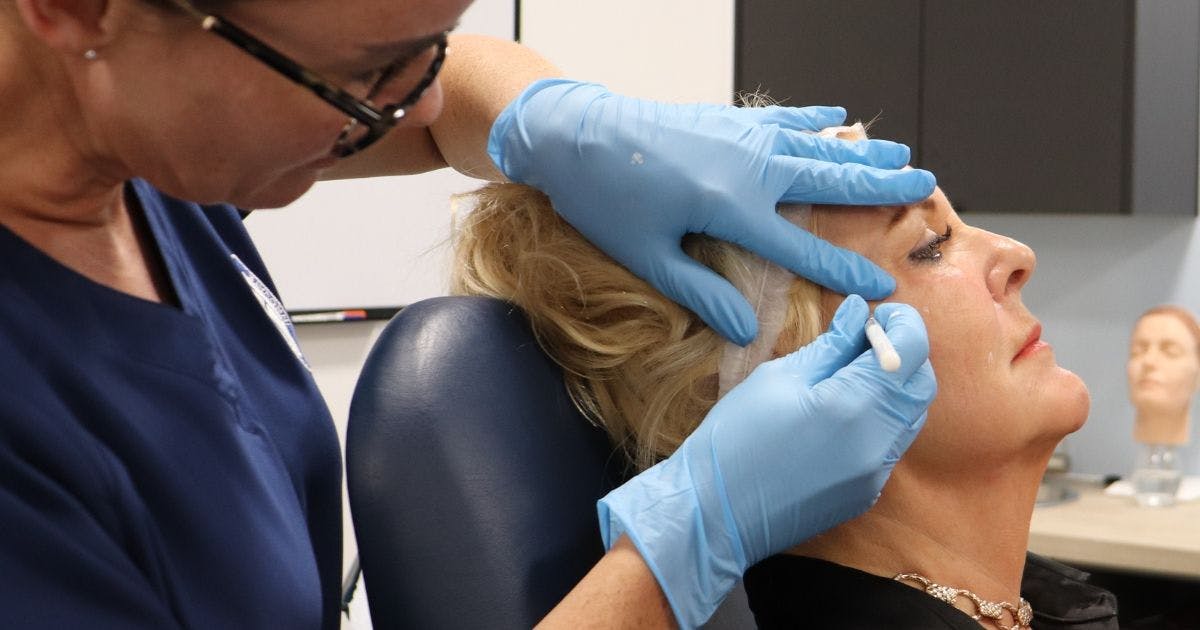
Who will need an aesthetics licence to practise?
Alice: “Who will need a licence? I mean it's going to pretty much anybody who's approaching any level of aesthetics, whether it's the green procedures that anybody can do freely, the amber ones which need a bit more supervision, or the red ones which are restricted, isn't it?”
Dr Tristan: “Everyone will need a licence, Alice, and that's one of the key ideas here. That there is no one who has an automatic level of understanding of this. Certain professional groups may not need to pass through the same hurdles for education because they are already deemed competent. For example, a consultant dermatologist. But they will still need, through their local authorities, to get their licence to practise.”
Every aesthetics practitioner will require a licence to practise
Alice: “For the consumer it will become clear, eventually, that if somebody is doing anything to do with aesthetics, they need to have a licence, and it will be very clear who has one and who doesn't.”
Dr Tristan: “Exactly, and so for the purposes of educating the public, I think our job gets a lot easier to signpost to the right people.
“This is something that's really close to us - myself, my team and the company - and we've got a lot we're working on in terms of adhering and driving these new standards.
“I still maintain that a minimum education requirement is essential - that's the way things are going. It's looking like it's going to be the Level 7 and that's something that I've been passionate about from the very beginning. So, I think we should feel very optimistic about the way things are going, to be honest, Alice.”
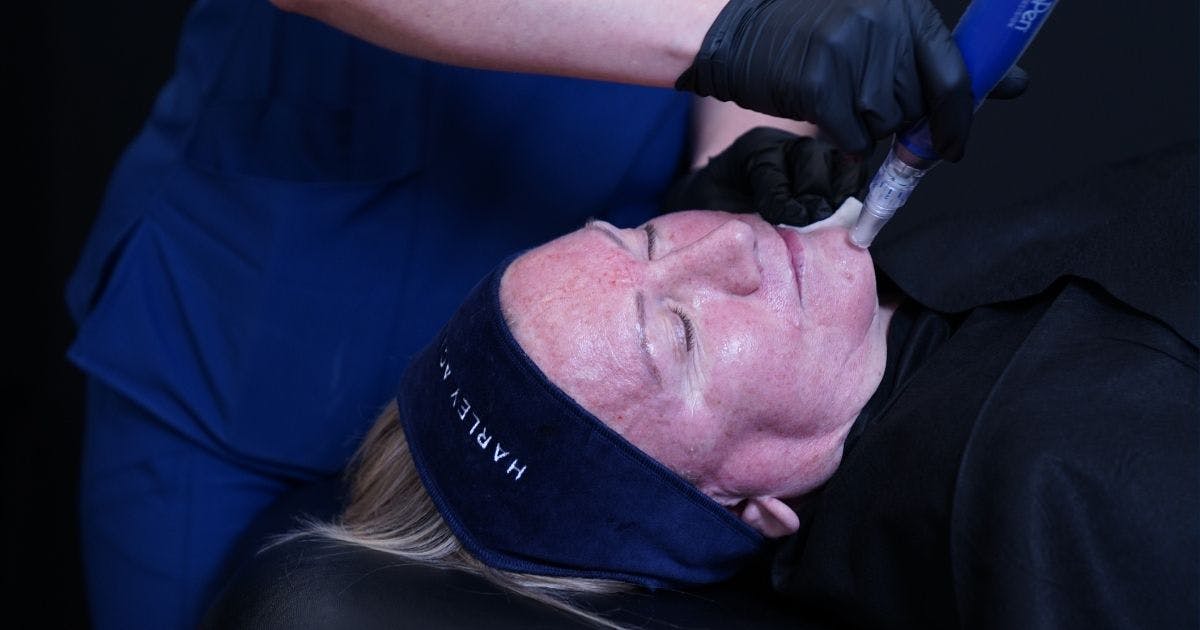
Current aesthetics regulations governing cosmetic procedures
Alice: “Are there any current regulations governing aesthetics procedures and how do they ensure patient safety? I feel very, very few but I think you will know better than I what there is already in place.
Dr Tristan: “There are some fundamental laws in the UK which have a very minor degree of protection. But ultimately, as you know as well as I do, the actual practice of this field is completely unregulated, still.
“And, in a weird kind of backwards way, some of what the most competent practitioners, which are the healthcare practitioners, are the ones who are most regulated right now, so have a more stringent set of requirements, which is great, because it maintains the professional standards that we have as healthcare professionals. But, of course there is a lot of frustration in that…”
What is the next stage in the aesthetics licensing process for England?
Alice: “What's the next thing that has to happen? Is it just the due processes of law grinding through their labyrinthine mechanisms?
Dr Tristan: “There will be the response to the consultation, that'll be the end of summer, and then from that response the DHSC [Department of Health & Social Care] will then work in consultation with some of the associations that have been guiding them.
“For example, the JCCP [Joint Council for Cosmetic Practitioners], on what these education standards are going to be. The CPSA [Cosmetic Practice Standards Authority] on what these clinical standards are going to be. From that process, there will then be more formal processes put in place.”
Alice: “It is so slow from a consumer point of view. I say this as somebody who has an article in a cuttings book somewhere from 2001 saying 'Goodbye to the Cosmetic Cowboys' which was when the British Association of Cosmetic Doctors, now BCAM, was formed with a specific aim of bringing about regulation. I'd kind of given up on the fact that there would ever be regulation coming through, so this is fab.”
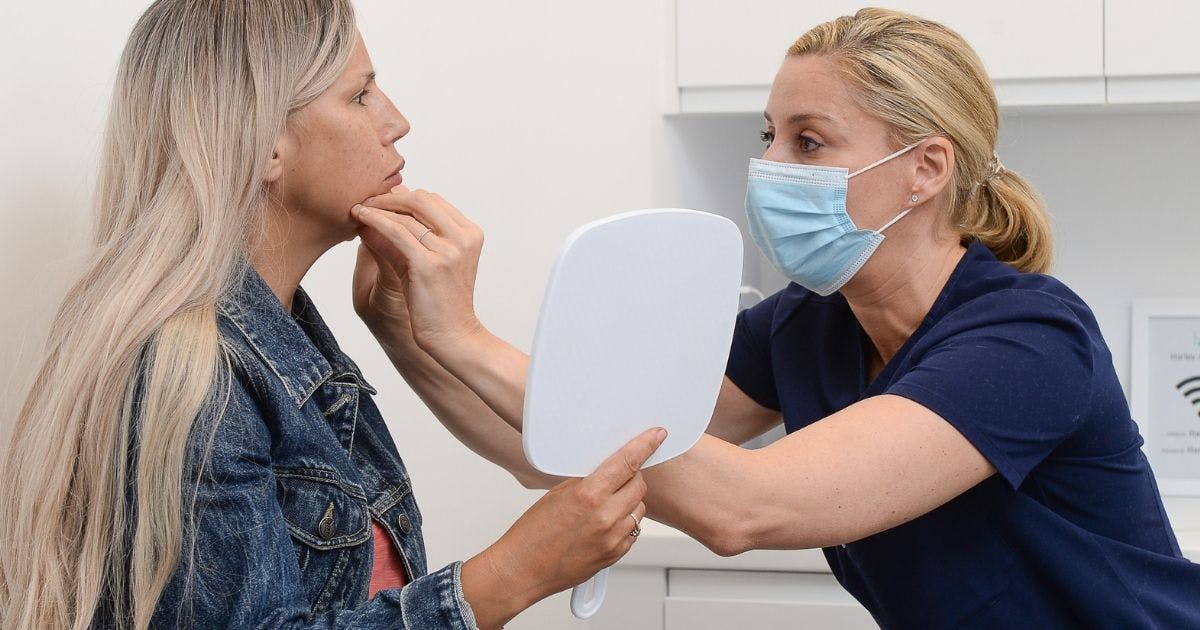
Additional information on aesthetics regulation and what the incoming licensing scheme may mean for your career
Understandably, with so much still up in the air as the aesthetics licensing scheme for England is developed, there is a certain unease for some injectors.
Whether you’re a healthcare professional considering if it’s worth getting started in aesthetic medicine now, or a more experienced aesthetics practitioner who’s concerned their qualifications may not meet the forthcoming requirements, we can help.
Exploring aesthetics training and injectables qualifications ahead of the licensing scheme
Book a free, 15 minute session with our support consultants. They have a detailed knowledge of the industry and have helped to shape the aesthetics careers of many medical professionals.
During this phone call you’ll learn more about the best aesthetics training pathways open to you and which are likely to be most appropriate based on your specific needs. They’ll be able to answer any questions and explain everything from the opportunities each route offers, to the payment plans available.
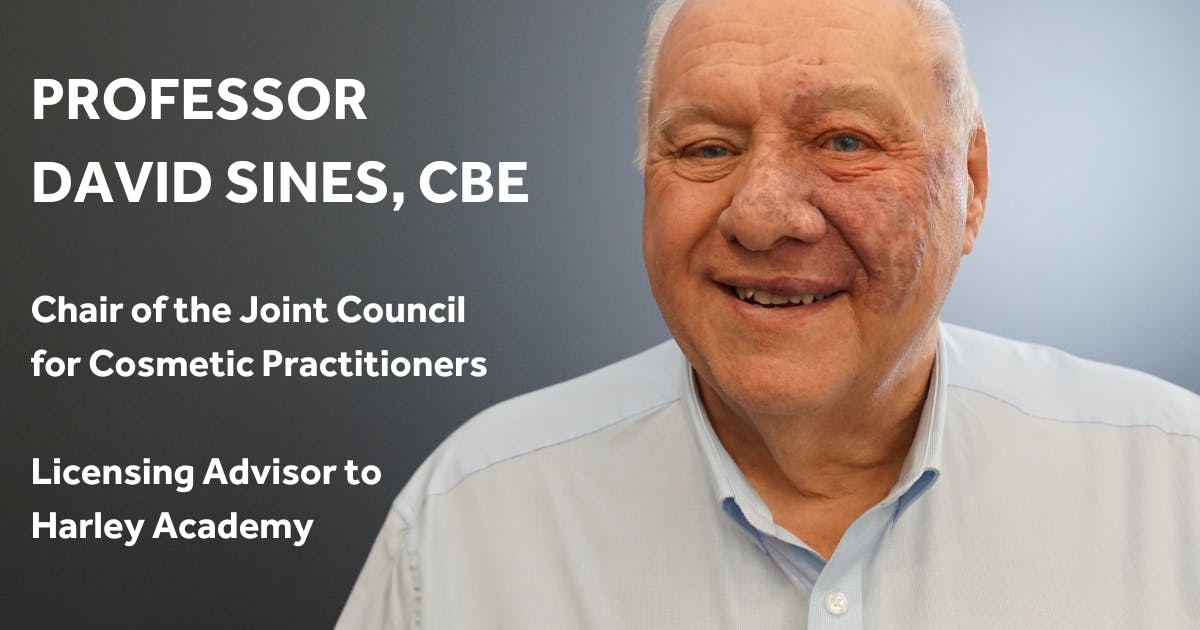
Information from our licensing advisor, JCCP Chair, Professor David Sines
We have previously published updates on the various stages of the aesthetics regulation plans for England. These interviews with our licensing advisor, Professor David Sines, CBE, Chair of the JCCP, are all available via the links below.
First Aesthetics Consultation Response Due After Easter 2024
This explains what the next step is in the licensing process and what we’re hoping to hear from the response.
First Aesthetics Licensing Scheme Proposals Released in September 2023
This article and video interview explores the details of the first proposal and consultation published as part of the DHSC’s initial outreach. We are currently awaiting the response to the consultation that followed this.
Explanation of the Key Points from the First Aesthetics Licensing Scheme Proposal
Here Professor Sines and Dr Tristan break down the most pertinent points from the first proposal.
Will I Need a Level 7 in Injectables to Get my Aesthetics Licence to Practise?
In this article we explain why the Level 7 has been spoken about so often in relation to potentially being the minimum standard of education required for aesthetics practitioners in England.
If you have any questions on either regulation or our aesthetics training courses, please do reach out via the Chatbot which you’ll find in the right hand corner of your screen.
All information correct at the time of publication
Download our full prospectus
Browse all our injectables, dermal fillers and cosmetic dermatology courses in one document
By submitting this form, you agree to receive marketing about our products, events, promotions and exclusive content. Consent is not a condition of purchase, and no purchase is necessary. Message frequency varies. View our Privacy Policy and Terms & Conditions
Attend our FREE open evening
If you're not sure which course is right for you, let us help
Join us online or in-person at our free open evening to learn more
Our Partners














STAY INFORMED
Sign up to receive industry news, careers advice, special offers and information on Harley Academy courses and services

